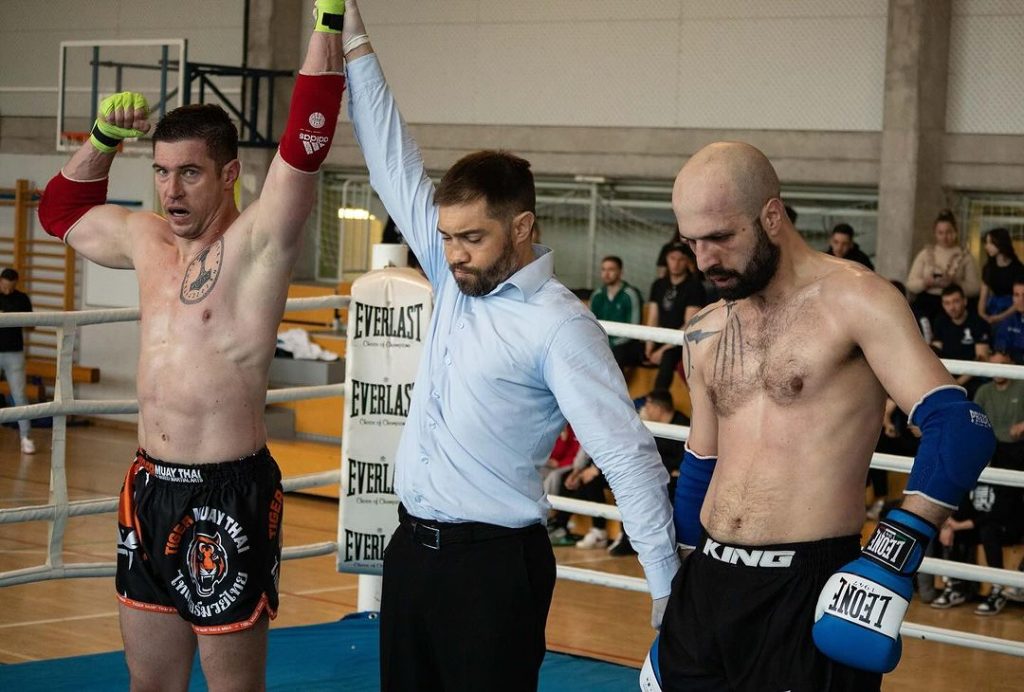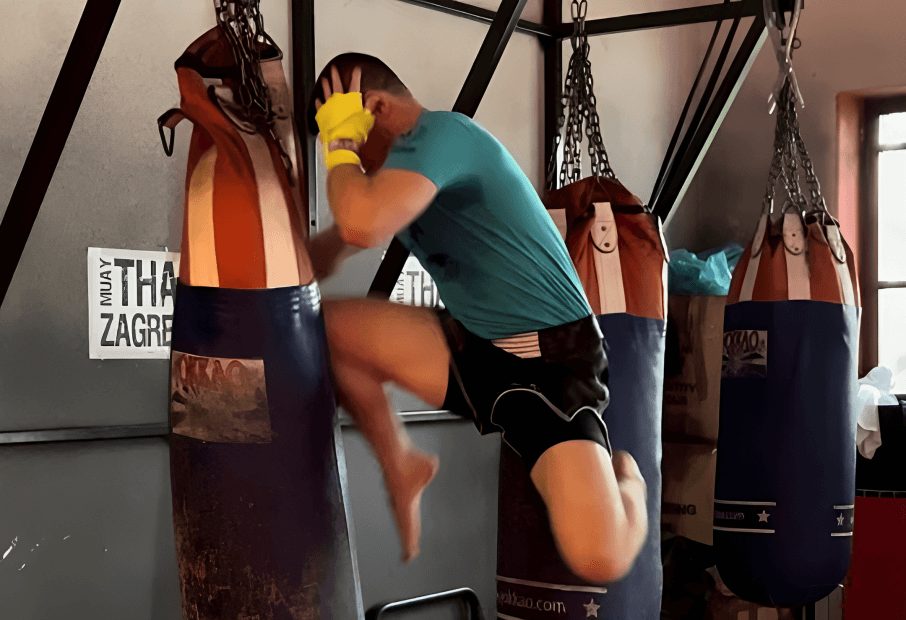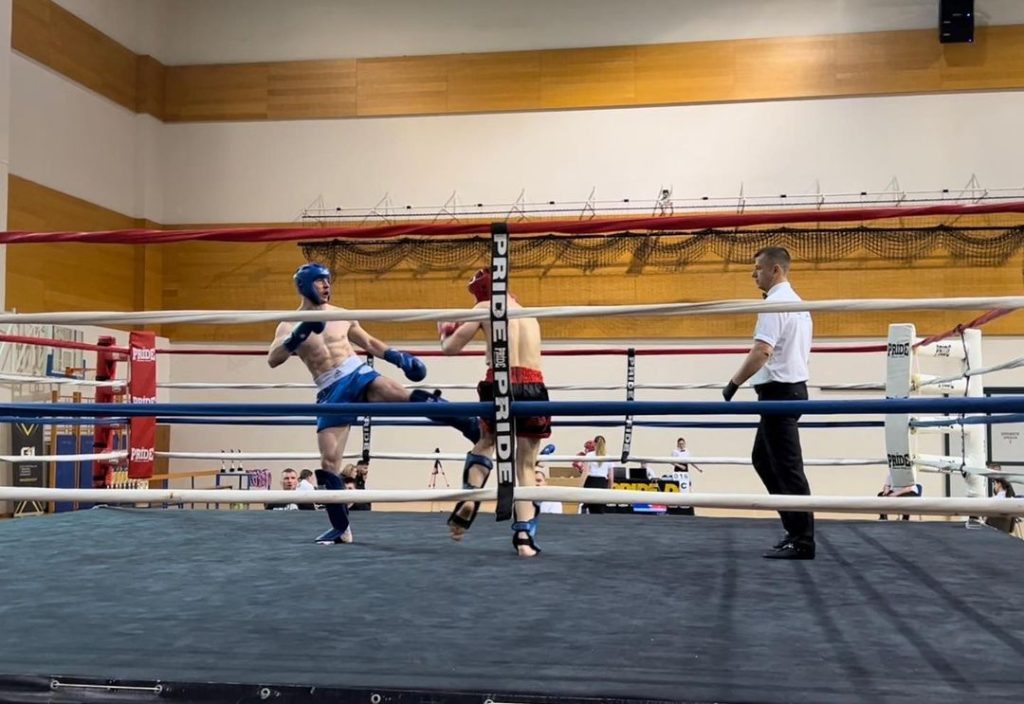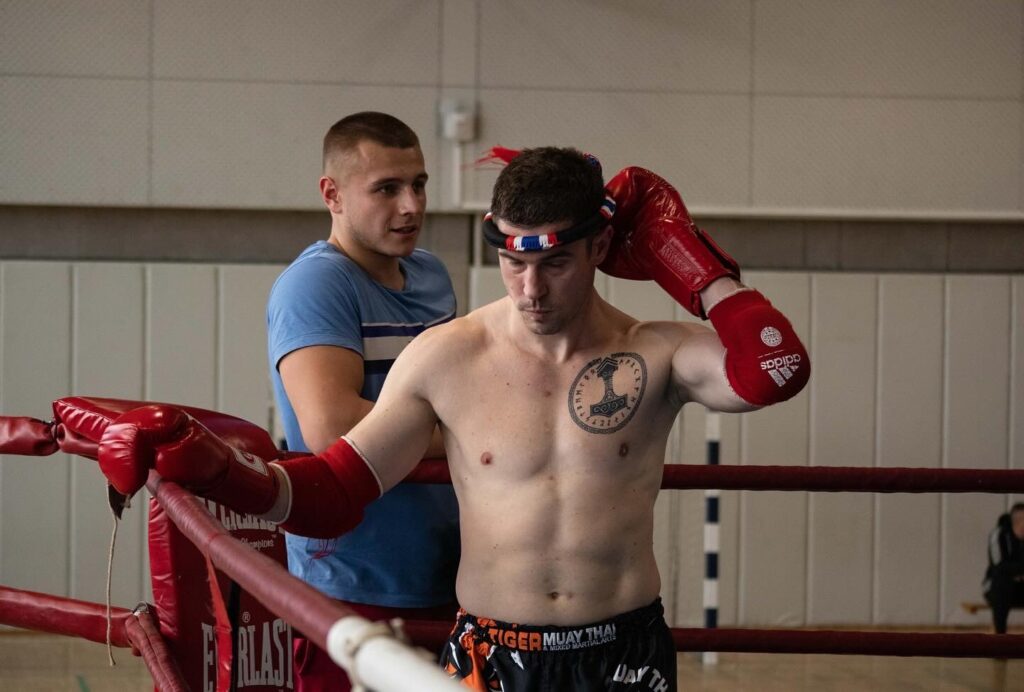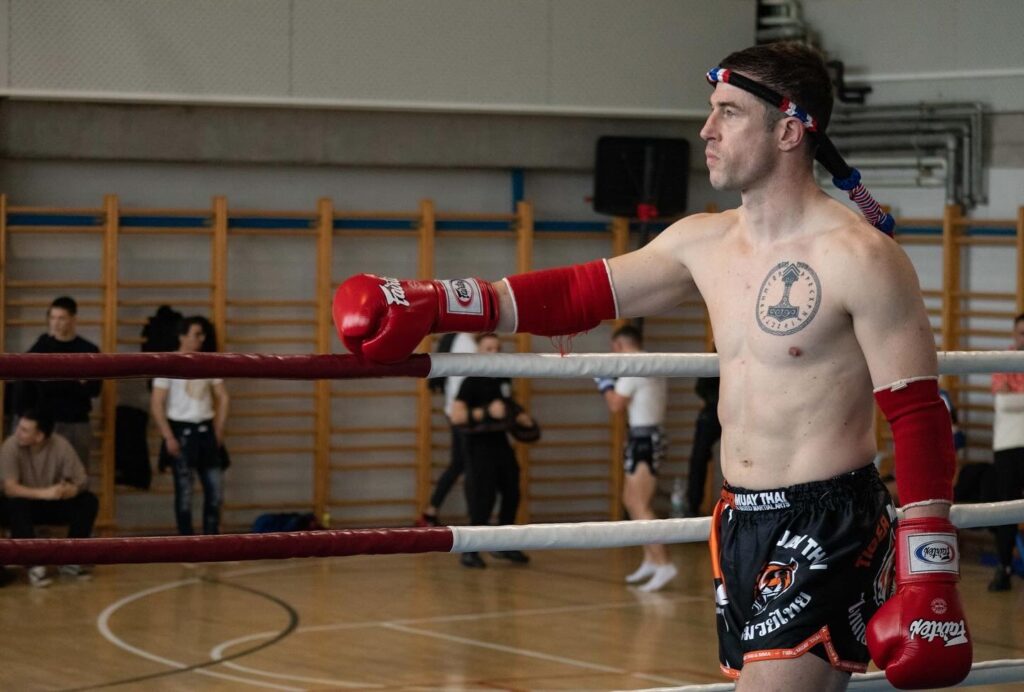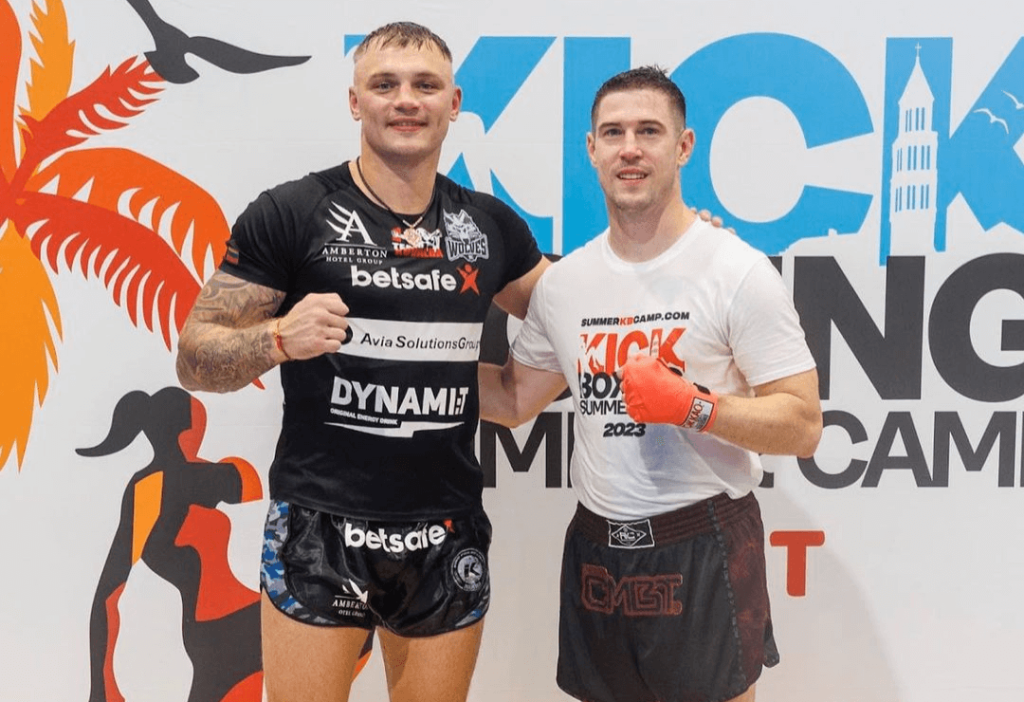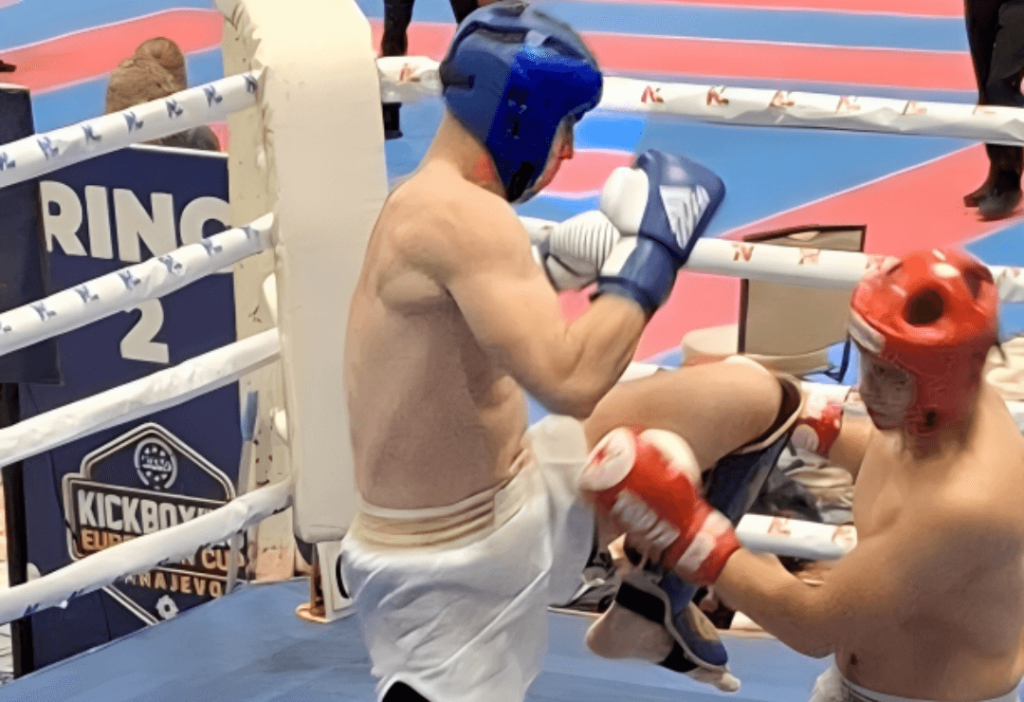- 0041 76 2050 764
- nika@mentalgamepro.com
- Lausanne, Switzerland
TIN
A Viking in Sport and Life
Previous
Next

Tin Jelinek is a professional kickboxer, a successful businessman, and the owner of a kickboxing club in Croatia’s capital. This young man captivates with his focus, evident from the first encounter. He trains young athletes to take punches, supports 35 families through his employees, and has been working since he was 15. By the age of 19, he owned a thriving merchandising company.
Entering the world of kickboxing at an age considered ‘old’ for the sport, no one believed he could succeed. No one except himself. His provocative and non-mainstream views on life add an extra layer of intrigue to his character.
In this brutally honest interview, Tin reveals how he stays at the top of his game, deals with setbacks, and shares his thoughts on the status of women, their advantages and disadvantages compared to men. We also discuss depression, burnout, and how to handle bullying in schools – an interview you’ll devour in one sitting!
Play Video
New Interview
Tin Jelinek
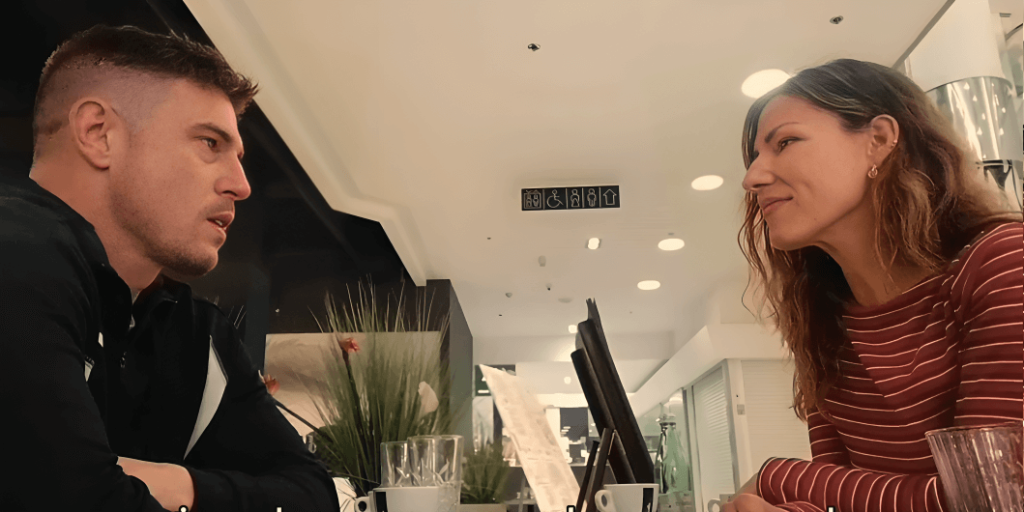
I started my private business when I was 19, in 2008, during the peak of the financial crisis. My mindset was, if we survive this, we can survive anything.
We have 35 employees. We grew gradually, using our own funds, taking steps forward and backward.
Although I don't like giving advice, I’d say – always leave room to take a step back. Just like in the ring, the ability to step back in business is more valuable than the ability to move forward. If you reach a point where you need to step back and can’t, that’s the end.
I compare it to kickboxing. If you can’t step back, you get pushed against the ropes, limiting your mobility and draining your energy. You lose control, both physically and mentally. In business, always leave room to retreat, so you can re-center and regain control.
Honestly, I don’t. No one enters the ring without nerves or fear. Even top fighters sometimes don’t sleep for days before a fight. I had a two-year break, and when I fought again, it felt like my first time in the ring.
Yes, like anyone else. I get nervous before a fight, but once I step into the ring, the nerves fade after the first three punches. From there, I’m in my element – it feels like paradise.
Definitely. Many young fighters try to end fights quickly out of fear, but after years of training, entering the ring is the highlight of the process. Enjoy it instead of rushing to finish.
In the ring, you’re facing an opponent who’s equally prepared to hurt you, which adds a different level of mental pressure. In training, you don’t have that element of surprise.
70% mental. Some fighters are full of adrenaline and confidence before a match but freeze once inside the ring. Others might be unsure of themselves but fight like lions when the time comes.
I’m the type that needs to psych myself up before a fight. It’s part of my success. Even though I started late in this sport, I believed I was an exception to the typical rules about age in kickboxing.
Around 12 or 13. By 15 or 16, fighters should be in the ring with 20 fights under their belt before transitioning to senior levels. The competition gets tougher, but it’s essential to build that experience early on.
I’ve had more failures than successes. I started late, so my first few fights were against highly experienced opponents. I lost my first five matches but didn’t let that discourage me. I tell my students it’s better to lose a few times and then win, as it builds resilience.
Failure in business is not trying. For instance, during the pandemic, we lost 60% of our revenue in the short term, but long-term, it helped us grow. True failure would be getting trapped in a deal you can’t walk away from. Freedom in business is being able to say no.
Kickboxing teaches you that even with the best preparation, things don’t always go as planned. But you don’t complain – you move on. The discipline and dedication required in the sport also apply to business.
Be cautious not to trap yourself, financially or otherwise. Always leave room for maneuvering.
Yes, for various reasons, like weight cutting before fights, which is harder for women. Women also tend to face more challenges returning to professional sports after having children.
In some sports like archery, men and women are equal, but in kickboxing, the differences are more pronounced, which is okay. There’s a reason we have different categories.
Honesty, especially in admitting weakness. False modesty is worse than arrogance.
I believe that life becomes easier when we don’t dwell on them. It’s okay to feel down, but it’s important to get back up and keep moving forward.
In sports, my goal is to push myself to my limits and enjoy the process. In business, it’s about consistency and ensuring that money isn’t the sole motivator.
Peer aggression is often a sign of weakness. I’ve seen many young kickboxers stop being affected by it after a year of training. The confidence they gain in the ring translates to other areas of their lives.
Visualization helps you prepare for the fight. But you must be flexible and not rigid in your approach, understanding that there are many paths to achieving a goal.
- Mike Tyson: A showman.
- Novak Djokovic: Longevity.
- Cristiano Ronaldo: An example.
Women’s football.
